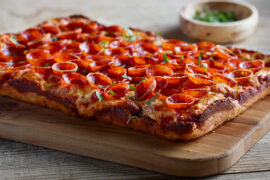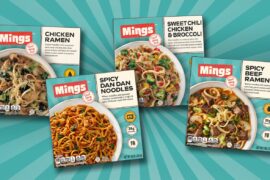The traditional British banger has long been a household staple in the United Kingdom, served on plates from breakfast time right through until dinner. According to AHDB Pork, the levy board responsible for enhancing and supporting the English pig farming industry, 3.5 million meals containing sausages are eaten at home in the UK every day. More sausages are consumed as part of an evening meal in the home (61%); compared to 24% at breakfast and 14% at lunch. With over 400 different varieties produced nationally, sausages are big business for the retail sector.
Some of the most popular varieties are region specific, such as Cumberland, Lincolnshire, Yorkshire in England, and Glamorgan in Wales. British sausages are traditionally made of pork, blended with different herbs and spices, with heritage taken very seriously. In fact, the Cumberland sausage, which has been a local speciality in the county of Cumberland for more than 500 years, was granted Protected Geographical Indication (PGI) status in 2011.
In the current novel coronavirus (SARS-CoV-2) environment, British consumers have been ensuring their home pantries and refrigerators are well stocked and have been buying in bulk to reduce the number of shopping trips during the pandemic. This means increasing numbers of people are turning to frozen food, and the Iceland retail chain reported a 20% increase in sausage sales compared to its run rate before the lockdown.
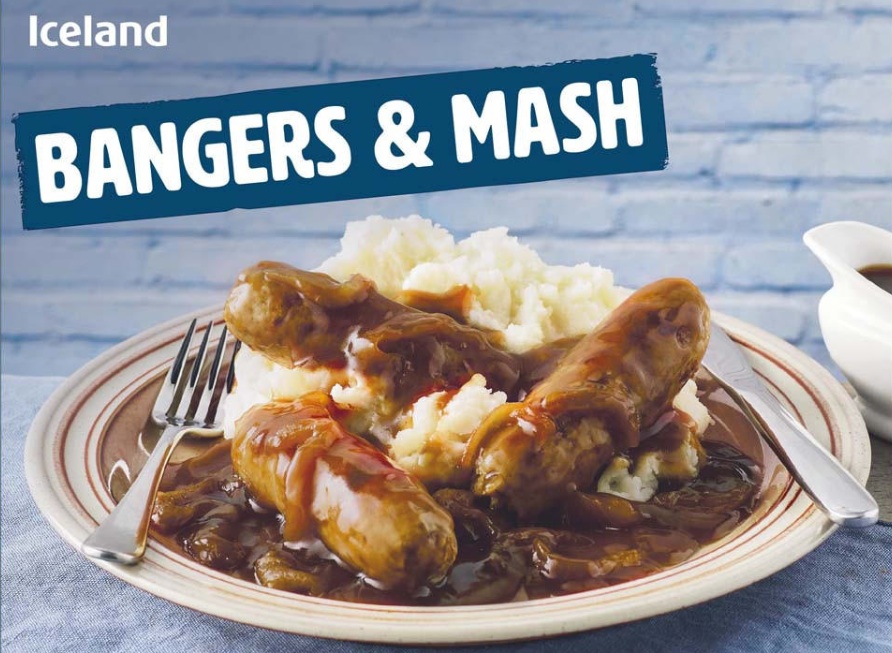
Perfect Blend
Although the classics remain popular with consumers, the humble sausage has evolved way beyond the pork varieties that have traditionally been on offer. Supermarket freezers are now packed with sausages made from a variety of ingredients to appeal to a wider audience.
“Veggie and low calorie (diet specific) sausages are seeing increases in demand driven by health conscious shoppers,” said a spokesperson at Iceland. “Chicken and vegan sausages are also growing in the market, albeit from a low base.”
One sausage brand that has taken the UK retail sector by storm is HECK, which has seen its retail sales reach £23.6 million per annum. Originally offering a chilled line, the producer has now expanded into the frozen sector with a range of chicken, pork, reduced fat and vegan sausages in Waitrose, Sainsbury’s and Tesco stores.
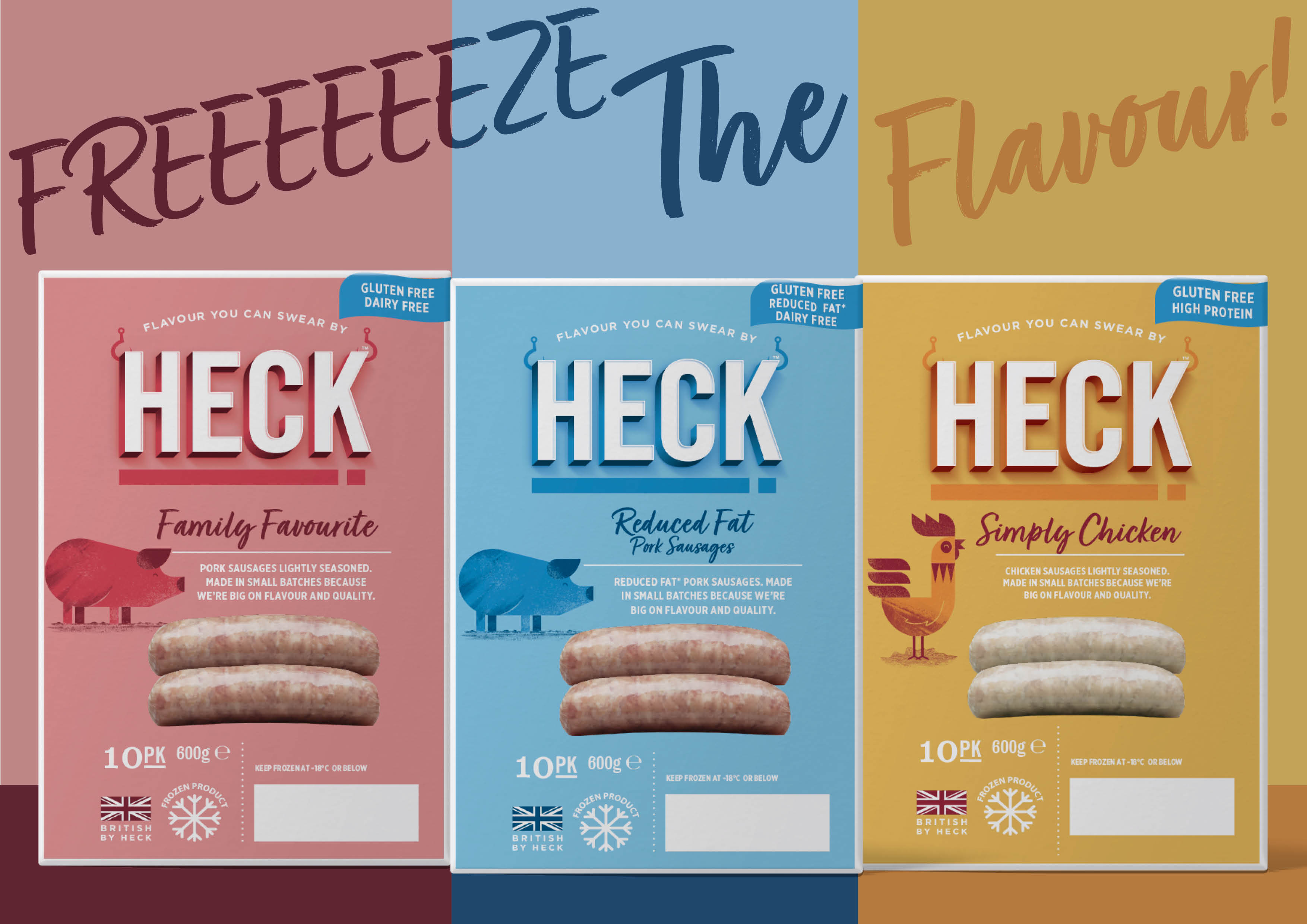
The Kirklington, Nottinghamshire, England-based company expects to boost turnover to close to £50 million during the 2020 calendar year, driven by increased sales from the new frozen assortment.
“We see a huge opportunity in frozen food because we can deliver on many levels, creating a premium sausage category designed for people who want to reduce their environmental impact and also cut down on food waste and packaging,” said Jamie Keeble, co-founder of Heck Food Ltd. “We predict our frozen range will be around 30% of our business in 2020, and the fact that the recipes contain no additives either means we can see this launch creating a lot of love in the freezer aisles.”
Convenience Remains King
High street chains like Greggs are revered for their sausage rolls, so when the stores were forced to close due to the pandemic the demand for these pastry-based products rose dramatically.
“Greggs Sausage Rolls are one of our top frozen products,” said a spokesperson for Iceland. “We have naturally seen a very substantial increase in sales since Covid-19 led Greggs to close all its own shops.”
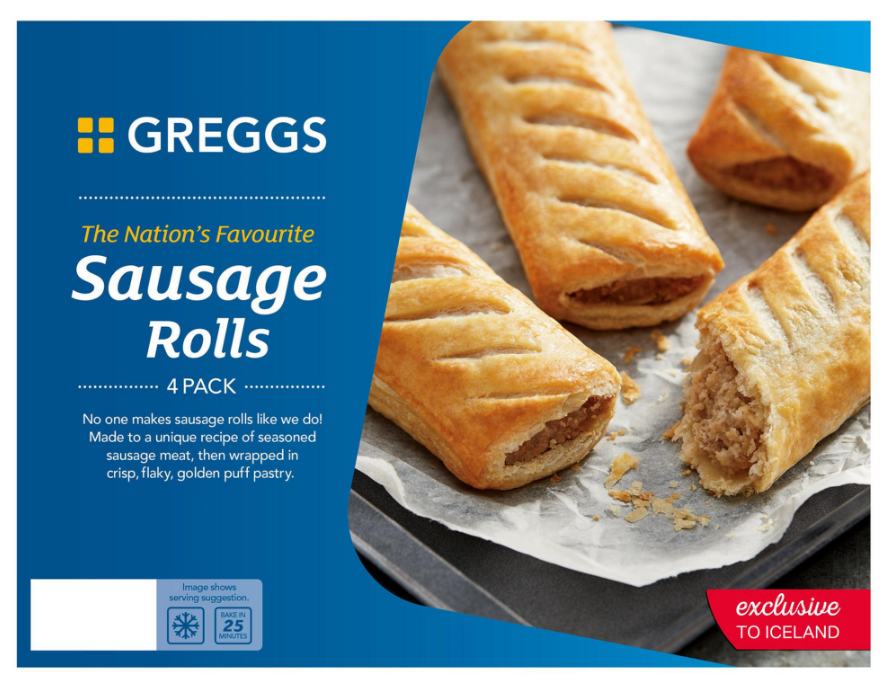
Birds Eye’s traditional Homebake sausage rolls, which are available in over 2,000 stores nationwide, have also remained highly popular across Britain. Senior brand manager Anne-Marie Gayer attributes this to the way the product is baked.
“Sausage rolls are one of the most popular options at high street bakeries and have an iconic status in the UK, so the pastry we use in our Homebake rolls is only cooked once, by the consumer at home,” explained Gayer. “This results in a product that is comparable to what you would find in high street outlets, but with the convenience of being able to cook at home straight from the freezer.”
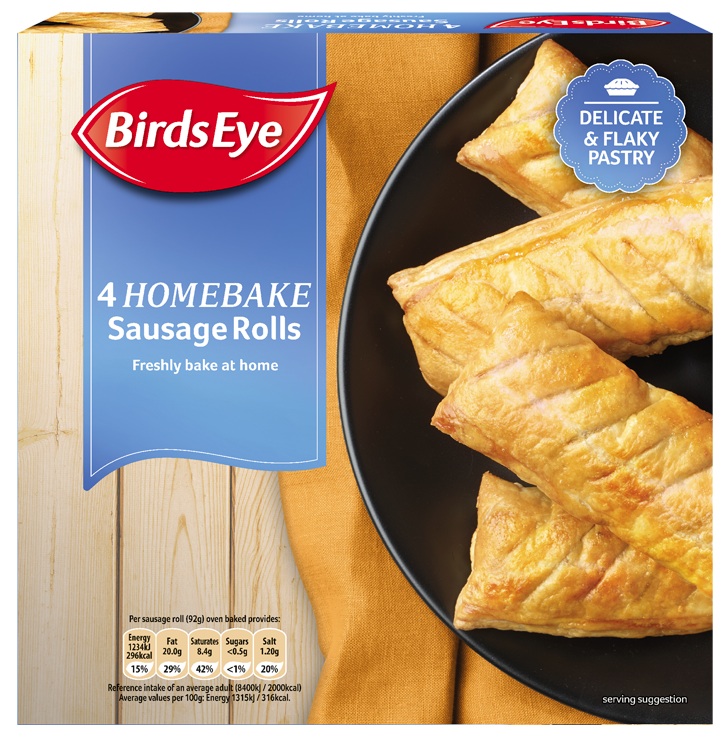
Sales in the UK convenience frozen food category have been strong over the last four weeks, charting a growth rate of +54.5% according to Nielsen Scantrack statistics. Birds Eye has reported an increase in sausage roll purchases during the lockdown, which is in line with what it has seen in other categories as in-home consumption soars.
“This significant growth has partially been driven by the increase in number of occasions using frozen, with more consumers cooking from scratch at both lunch and dinner time,” said Gayer. “Frozen food has demonstrated that it can help families create those special moments without the stress and anxiety when preparing them.”
Birds Eye’s “So what’s for tea?” campaign, launched in April to give shoppers ideas for mealtime recipes and activities to entertain the family during lockdown, has no doubt contributed to the brand’s buoyant sales.
Trends have also evolved in the sausage roll sector with meat-free options infiltrating the category. For example, January of this year was the biggest month ever for meat-free frozen products, as sales value of £16 million was up +12%.
Birds Eye is the fastest growing brand in the sector and drove 40% of the category’s growth through its Green Cuisine range, which has recently been extended to include a four-pack of meat-free sausage rolls.
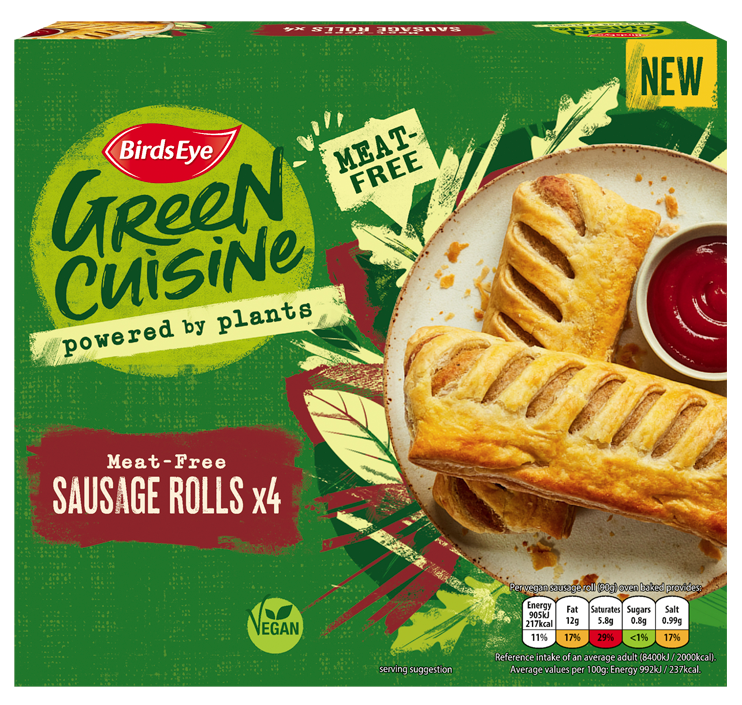
“The new product is suitable for vegans and has been developed to closely replicate the iconic taste and texture of our traditional Homebake frozen sausage rolls,” said Gayer. “They are in stores nationwide now and are expected to appeal to families and bring new shoppers to the category.
“We tend to see that low-calorie options are not typically a key driver of purchase in this category, whether with meat-free products or the traditional alternatives. Instead, the popularity of frozen pastry products is led by high street eating, with people wanting to replicate that experience as closely as possible at home.”
The frozen sausage sector has clearly evolved to keep up with current trends, offering an assortment of options to suit a variety of tastes. Innovation coupled with the current increase in consumer demand has seen sales surge in this already buoyant market – Reported by Sarah Welsh



